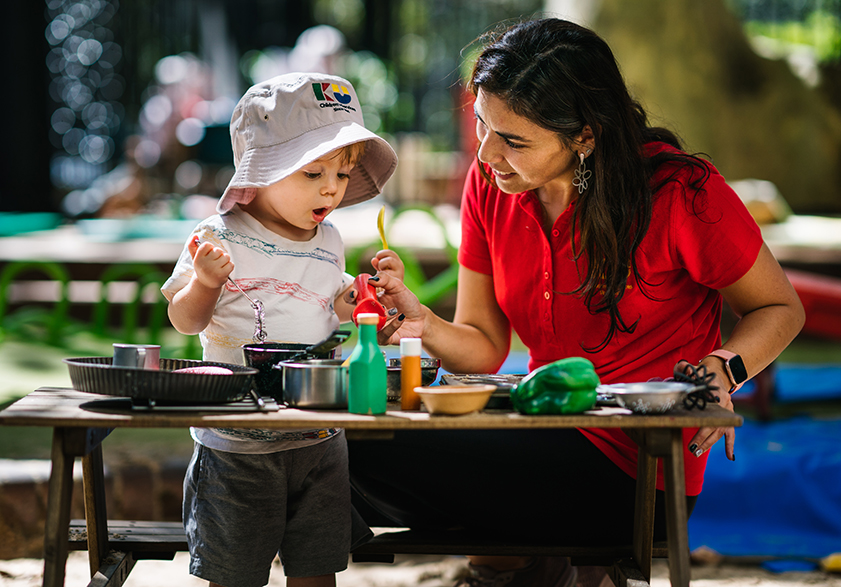KU teachers are specially trained to see what your child sees in the moment to take their learning further.
There are many factors parents need to consider when choosing a preschool or childcare centre for their child, as not all early childhood services provide the same level of quality of education and care.
Current research suggests about 90% of brain development happens in the first five years of a child’s life. The early childhood service parents choose will have a significant impact on their child’s overall learning and development.
Christine Legg, CEO of KU Children’s Services, a leading provider of preschools, childcare and other early education services in Australia, says there are a number of factors that determine the quality of a service, with a key factor being the quality of educators.
“Early childhood educators led by a university qualified early childhood teacher are essential. Each teacher and educator plays a crucial role in supporting the ongoing learning and development of each child,” says Legg.
An important aspect of early childhood educators’ work is recognising ‘teachable moments’ throughout the day. Teachable moments are unplanned opportunities that teachers and educators can use as opportunities to extend children’s learning. For example, standing in the sun may provide an opportunity to talk about the importance of sun safety or shadows.

“90% of brain development happens in the first five years of a child’s life”
Vandana Vasudevan’s daughter attends KU Chatswood Community Preschool and has been seeking out familiar shapes in everyday items ever since her teachers introduced the idea through teachable moments.
“My daughter saw a pineapple at the supermarket and said ‘Mum, we have to take a picture! My teacher said we can see a pentagon shape’. Now she goes around taking photos of all the different shapes she finds in our house,” says Vasudevan.
“The teachers at KU Chatswood are amazing. I see their commitment and can tell they have inspired my daughter. She loves her teachers.”
Young children learn best by ‘doing’ rather than by ‘being told’. All KU centres have play-based learning programs which provide a wide range of active and meaningful experiences for children.
“Active participation through play is vital for each child’s learning and development and helps build and strengthen brain pathways,” says Legg. “Play has a wide range of intellectual and cognitive benefits, including those relating to memory, language development and regulating behaviour.”
When choosing a preschool or childcare centre, also consider the environment where the children will play and learn. The centre’s environment should be open, inviting and nurturing to support each child’s learning.
Belinda Rahim’s daughter Zakiah attends KU Corrimal East Preschool and the safe, warm and supportive environment at the preschool has allowed her daughter to feel more comfortable and become more confident as she learns.
“KU Corrimal East is the type of centre I had been looking for because it matched with our gentle and respectful attachment style of parenting,” says Rahim.
“KU feels like part of our family. Our daughter loves to tell her teachers exciting things that have been happening in her life, and her stories and experiences are always celebrated, listened to and remembered.”
Ultimately, while the quality of teachers and educators, the educational program and the environment are all central factors to consider when choosing a preschool or childcare centre, sometimes the difference between centres is more instinctive. Visiting a range of centres is recommended before choosing a place where you can see, feel and hear the difference.



